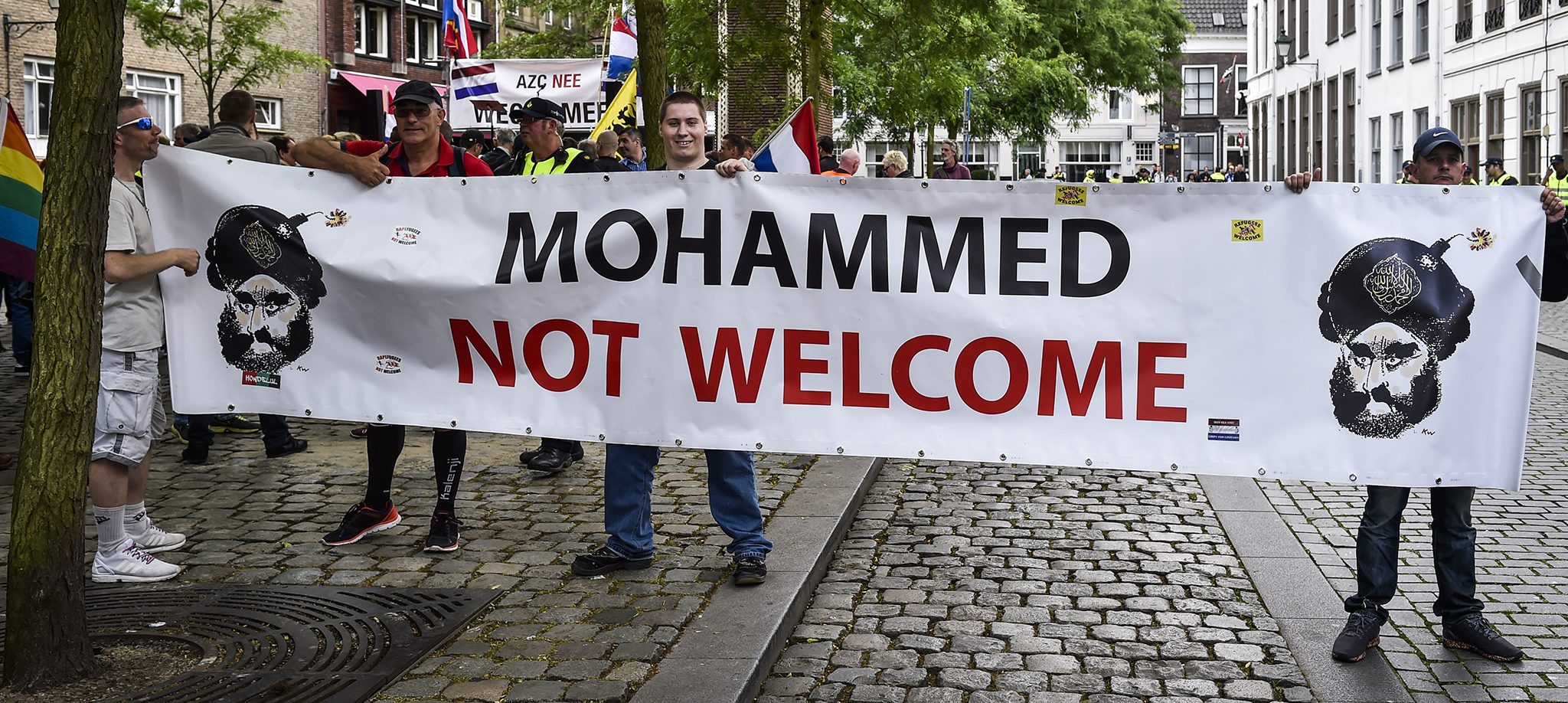
Global
Harassment of women over religious dress occurred in nearly 33% of the countries around the world.
Pew Research Center on Religion Public Life
Muslims make up the 2nd largest religious population in the world and are discriminated against in 121 countries worldwide.
Pew Research Centers Religion Public Life
Jews make up less than 1% of the population, yet experience discrimination in 85 countries — the 3rd most of any religious group.
Pew Research Centers Religion Public Life
U.S.
The F.B.I. defines a hate crime as a “criminal offense against a person or property, motivated in whole or in part by an offender’s bias against a race, religion, disability, sexual orientation, ethnicity, gender, or gender identity.” Victims of hate crimes can include institutions, religious organizations and government entities as well as individuals.
Over 18% of all hate crimes in the U.S. are related to religious bias.
Most religiously motivated hate crimes are acts of vandalism (like swastikas spray-painted onto synagogues and tombstones), but personal attacks are not uncommon.
The Federal Bureau of Investigation (FBI)
58% of Americans believe Muslims face a lot of discrimination in the United States. 26% believe atheists face a lot of discrimination and and 24% believe Mormons do.
Pew Research Centers Religion Public Life
Overall 86% of Americans say they “want to live in a country where no one is targeted for their religious identity.” This agreement ranges across faith communities from 95% of Jews to 78% of white Evangelicals.
Institute for Social Policy and Understanding
66% of Americans agree that “the negative things politicians say regarding Muslims is harmful to our country.” 45% of white Evangelicals agree with this — the only group lacking a majority agreement.
Institute for Social Policy and Understanding
Most Americans oppose the surveillance of U.S. mosques. This ranges from 77% of non-affiliated Americans to 45% of white Evangelicals — the only group lacking a majority agreement to this statement.
Institute for Social Policy and Understanding
55% of Americans say that most Muslims living in the United States are committed to the well-being of America. 36% of white Evangelicals agree with this statement — the only group lacking a majority.
Institute for Social Policy and Understanding
71% of Muslims reject military violence against civilians, compared to 42% of the general public.
Institute for Social Policy and Understanding
80% of Muslims reject violence carried out by an individual or small group, compared to 74% of the general public.
Institute for Social Policy and Understanding
76% of Muslims say violence against civilians can never be justified compared to 59% of the general public.
Institute for Social Policy and Understanding
The majority of American fatalities at the hands of extremists are from right-wing terrorists not extremists acting in the name of Islam.
Institute for Social Policy and Understanding
Law enforcement agencies rank anti-government extremists as a greater threat than Al Qaeda or like-minded terrorist organizations.
Institute for Social Policy and Understanding
Someone perceived to be Muslim accused of a terror plot will receive 7 times the media coverage as someone not perceived to be Muslim.
Institute for Social Policy and Understanding
Attacks by Muslim perpetrators received, on average, 357% more coverage than other attacks.
46% of Muslim agree that wearing a visible symbol all of the time that makes their faith identity known to others, such as a headcover or hijab.
Institute for Social Policy and Understanding
Of Muslim women who wear a hijab or headcovering,
- 54% say they do so to indicate piety or to please God
- 21% say they do so to be identified as a Muslim
- 12% say they do so for modesty
- 1% say it is because a family member or a spouse required it of them
Institute for Social Policy and Understanding
The states with the highest total of anti-Semitic instances were those with large Jewish populations. The top four states were California, New York, New Jersey and Florida.
